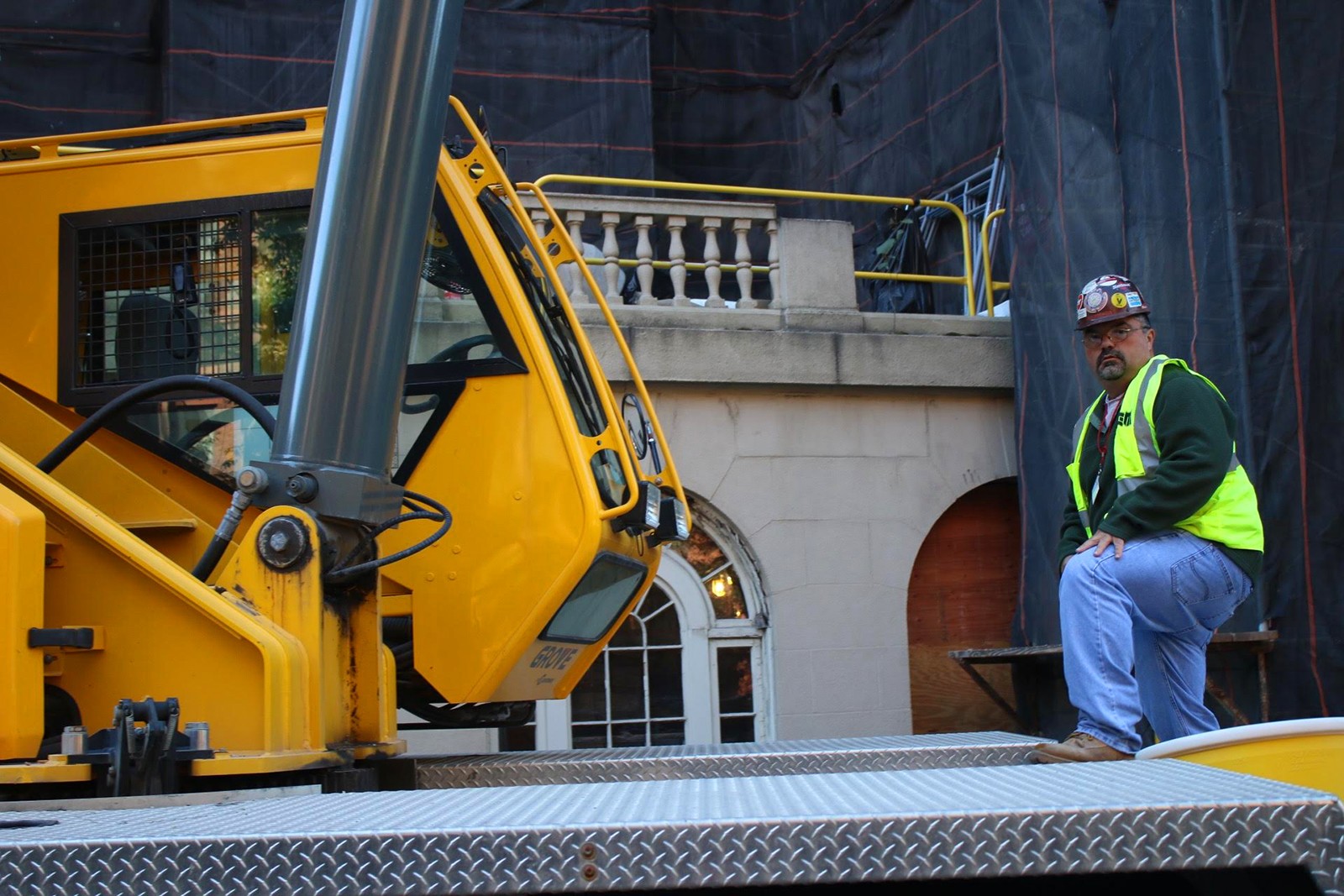
Soon after Claire Linden moved into her room at Myles Standish Hall two weeks ago, she knew the days she could sleep until noon were long gone.
“My room was right up against the construction,” the College of General Studies sophomore said. “I would wake up every day at 6:30 a.m. from the voices of the construction workers, and they would start drilling and hammering right outside my bedroom window at 7 … I barely got any sleep, and my allergies were flaring up really badly.”
As Boston University launched its 30-month plan to renovate the 90-year-old building, the school announced that the western side of the Myles Standish Hall would be under construction during the 2016-2017 school year. Linden is among the 405 students living in either the east side of Myles or the Annex during construction.
After “begging” BU Residence Life to move her anywhere else on campus, Linden still lives in Myles Standish, but her room no longer faces the construction.
The university is not blind to how construction noise impacts student life. Students who chose to remain in Myles were offered a 50 percent discount in their room and board costs for the year, said Marc Robillard, executive director for auxiliary services.
“We were concerned about noise. We want the contractors to be careful of what they do but we didn’t want to slow them down because this is on a really tight timeline,” Robillard said. “We figured that the best way to deal with this one is to tell people upfront that it was going to be a noisy construction site, and provide them some relief on the room rate.”
Alex Quinlan, a resident assistant in Myles, said so far a few residents on her floor have complained about the noise, but no one has filed an official complaint yet. The students just looking for someone who understand their plight, she said.
“I had parents during move in that were really upset,” the Questrom School of Business junior said. “One of the moms came up to me and was like ‘I can’t believe my son is living here. I’m not happy with this,’ but he chose to live there [anyway].”
While living next to a loud construction site is unpleasant, several students said they don’t regret choosing Myles and Myles Annex because the price is too good to pass on — a standard double room in Warren Towers costs $9,810 for the 2016-17 academic year, while a double in Myles costs $4,905.
“If I had the chance to go back, I would probably still pick Myles,” said Olivia Dorencz, a sophomore in the College of Engineering. “Price was definitely one of the biggest reasons for me choosing to live here, but I genuinely prefer living in East Campus.”
Robillard said the university considered closing down the entire building during renovation, but there are two challenges — it would be more difficult to find 753 beds to replace Myles and Myles Annex, and there is a higher risk that the construction wouldn’t be done on time.
“Hospitals renovate while they’re operating, hotels renovate while they’re operating, [so] we figured we could renovate while we’re operating,” Robillard said. “… We wanted to be able to accommodate students and we wanted to mitigate the risk of schedule.”
By next school year, constructions on the western side of Myles Standish will be complete and the area will be put into operation, Robillard said. While the eastern sides undergoes construction, students will be able to live in the new air-conditioned rooms.
The university leased the 180-unit apartment building at 1047 Commonwealth Ave. for two years as a temporary replacement for the beds lost during the Myles renovations, Robillard said.
“We offered 1047 up as part of room selection. You didn’t have to live in Myles to live in 1047, and there was no priority given to Myles residents,” Robillard said. “We have a two-year lease at 1047, and when that lease is up, we won’t renew it. We will open up Myles, which will be brand new, and it will be fantastic.”
Rob Bonigli-Hinson, a sophomore in Questrom, said he needs to get up early for class, so the construction noise does not impact him as much. Plus, he said, the reduced price is “a great opportunity” to save money and ease financial burden.
“If I could pay the extra $5,000 without any problem, then yes, I would pay the money to live in 1047,” he said. “[But] every situation has its pros and cons.”




















































































































